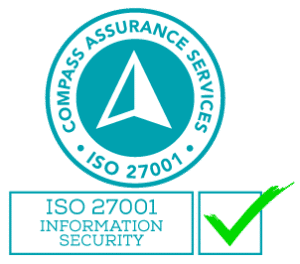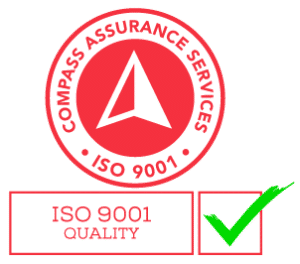Accounting firms have been steadily moving away from ledgers and paper files to digital solutions that streamline workflows and reduce human errors. One of these solutions is automation: a wide range of tools and software designed to help finance professionals work faster and more accurately.
McKinsey & Company projects that automation technology could add between $1.1 and $4 trillion to Australia’s economy if adopted by the majority of Australian businesses by 2030 – a vision worth focusing on.
When it comes to accounting, automation isn’t just another accessory; it’s fast becoming its backbone. As the sector becomes more competitive, adopting these tools will be less of a choice and more of a necessity for firms that want to stay relevant and efficient.
Benefits of Accounting Automation
Increase efficiency: As all finance professionals know, time is money. Automation significantly reduces the hours spent on repetitive tasks, increasing the turnaround time. Imagine having a month-end report completed in hours rather than days, or payroll processed with a few clicks.
Reduce errors: Manual data entry, especially when it’s repetitive, is prone to errors. Automation greatly reduces these risks, ensuring calculations and financial reports are consistently accurate. This saves the potential costs associated with errors and enhances the firm’s reputation for reliability.
Cost-effective: Automation can lead to a reduction in costs associated with rectifying errors, manual record keeping, and redundant processes. It’s an investment that, in the long run, pays for itself many times over.
Greater scalability: As your firm grows, so do the challenges and volume of work. Automation solutions are designed to grow with you. This means you can handle an increasing number of clients or more complex accounts without increasing your staff or resources.
Considerations when Adopting Automation Tools
Data security: All finance companies handle extremely sensitive data. Ensuring your automation tools and software are built with robust security protocols is crucial. From encrypted data transfers to secure storage solutions, every aspect of data handling should be shielded from potential breaches.
User-friendliness: A solution is only as good as its usability. Tools that have steep learning curves can become a hindrance rather than a help. Your chosen solutions should be intuitive so your team can adopt and use it effectively.
Customisable: Every accounting firm has its own unique processes, client needs, and operational nuances. As such, your automation solutions should be adaptable. Whether it’s tweaking the user interface or modifying data processing parameters, these tools should offer a degree of customisation to align with specific requirements.
Integration with existing systems: Transitioning to a new system shouldn’t mean overhauling every existing process. Automation tools and software should be compatible, and easily integrate with software and systems already in place to ensure continuity and reduce the teething troubles often associated with new technological implementations.
Types of Accounting Automation Solutions
Accounting software
Tools such as Xero, QuickBooks, and Sage are staples for many accounting professionals. They assist in the basic functions and integrate automation for invoicing, payroll, and a myriad of other accounting processes, transforming traditional methods into swift digital operations.
Expense management
Say goodbye to sifting through stacks of receipts. Expense management software allows firms to automatically track, categorise, and manage expenses. These tools offer features such as scanning receipts and auto-matching them to transactions, streamlining the expense recording process.
Artificial Intelligence & Machine Learning
Beyond just forecasting, AI and ML are breaking barriers in anomaly detection within financial data and even client interaction. Chatbots powered by AI can assist clients, guiding them through common queries and issues, reducing the response time dramatically.
Robotic Process Automation
Robotic Process Automation (RPA) tools and bots are capable of replicating routine, rule-based tasks. It is able to process high-volume data extraction, generate intricate reports, and much more. With RPA, tasks that once took hours can now be condensed into minutes, boosting productivity exponentially.
Financial analytics
With AI, some tools provide predictive analytics, offering insights into future financial trends. By harnessing these technologies, firms gain a competitive edge in financial planning and advisory roles, backed by data-driven forecasts.
Cloud computing
Cloud computing is used in most modern businesses, and accounting is no exception. Cloud-based solutions like Microsoft 365 and cloud platforms like Azure offer work-from-anywhere capabilities, secure communication and collaboration, automated backups, advanced data security, and much more.
Customer Management Solutions
Onboarding clients and setting up meetings, payment reminders, responding to emails – managing clients is particularly time-consuming. Customer Relationship Management (CRM) tools will automate many of these processes.
Onboarding: From collecting necessary documents to setting up client profiles, CRMs streamline the initial stages of client engagement.
Reminders: Whether it’s a payment due date or document submission, these tools send out reminders to both accountants and their clients.
Meeting management: Automate scheduling, rescheduling, and reminders for meetings.
Quick replies: For commonly asked questions, automated responses like chatbots can be set up to send clients and potential leads immediate answers.
Payment processes: Automating invoice generation, sending them out, and even integrating with payment gateways for easy payment solutions.
Find the Right Accounting Automation Solutions for Your Firm
Embracing automation is imperative to remain relevant. Modern accounting firms that harness the power of automation today will be the trailblazers of tomorrow, setting benchmarks and
Steadfast Solutions specialises in providing the IT solutions, support, and management accounting firms need to enhance their efficacy, accuracy, and overall client service. Talk to them about accounting automation solutions and discover the tech that will pave the way for your firm’s growth and success.




